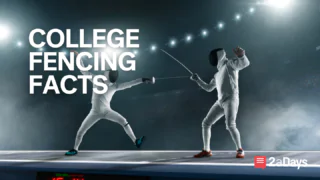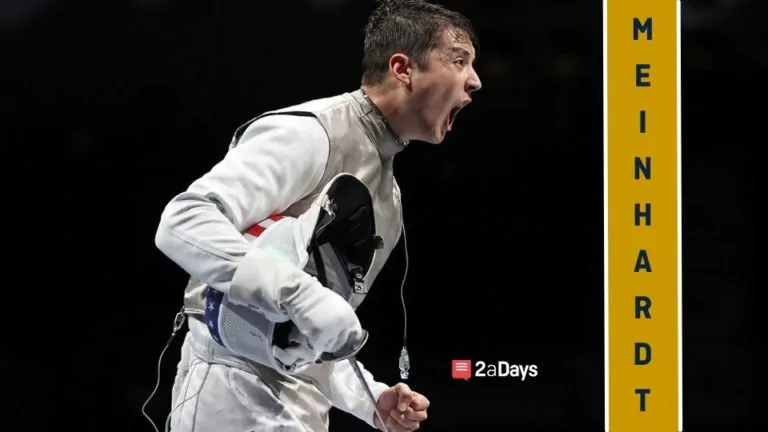College fencing is a super underrated sport in the NCAA. The sport has a limited number of schools that offer fencing as a varsity sport. This can make it challenging to find information about what it's like to compete as a fencer in college. Here are nine facts that every athlete should know before becoming a college fencer:
1. Number of Teams
The number of college fencing teams can vary from year to year, but as of 2023, there are 45 teams throughout the NCAA. This includes 28 teams in Division I, one team in Division II, and 16 teams in Division III. There are also 141 other schools that offer club fencing. These teams compete in smaller fencing leagues and are usually student-organized.
2. Conferences:
Fencing teams may attend different conferences, depending on the school's athletic affiliation. Conferences can include schools from various regions across the United States. Because fencing isn't a super popular college sport, their conferences can look a little different. Here are some of the most popular conferences and the teams that play under them:
Northeast Fencing Conference
- Boston College
- Boston University
- Brandeis University
- Brown University
- Dartmouth College
- MIT
- Sacred Heart University
- Smith College
- Tufts University
- UMass Amherst
- University of New Hampshire
- Vassar College
- Wellesley College
Mid-Atlantic Collegiate Fencing Association
- Cornell University
- Lafayette College
- Drew University
- Rutgers University
- Haverford College
- United States Military Academy (West Point)
- Stevens Institute of Technology
- New Jersey Institute of Technology
- Hunter College
- Yeshiva University
- College of William and Mary
- University of Virginia
- University of Maryland
- Johns Hopkins University
- United States Naval Academy
National Intercollegiate Women's Fencing Association
- Bryn Mawr College
- City College of New York
- Drew University
- Fairleigh Dickinson University
- University of Florida
- Haverford College
- Hunter College
- Lafayette College
- University of Maryland
- Mount Holyoke College
- CUNY Queens University
- Rutgers University
- Smith College
- Stevens Institute of Technology
- Swarthmore College
- Temple University
- University of Virginia
- Yeshiva University
- United States Military Academy
- United States Naval Academy
Mountain Pacific Sports Federation
- Stanford University
- United States Air Force Academy
- University of the Incarnate Word
- University of California San Diego
3. Championships:
NCAA fencing championships are held annually to determine the national champions in men's and women's fencing. Fencers qualify for the championships through regional tournaments.
4. Weapon Categories:
Fencing is divided into three weapon categories: foil, epee, and saber. Each weapon has its own set of rules and scoring methods. Athletes may specialize in one weapon or compete in multiple.
5. Individual and Team Events:
Fencers compete individually and as part of a team. There are team championships as well as individual championships for each weapon category.
6. Recruitment:
Colleges and universities with fencing programs actively recruit talented high school fencers. Fencers may receive scholarships or other financial aid to compete at the collegiate level.
7. Athlete Eligibility:
College fencing athletes must meet specific eligibility requirements set by the NCAA. These requirements include academic standing, amateurism, and adherence to NCAA rules.
8. Coaches:
Fencing teams have coaches who work with athletes to develop their skills and strategies. Coaches often have extensive experience in the sport and play a crucial role in developing collegiate fencers.
9. Facilities:
College fencing programs typically have dedicated fencing facilities with the necessary equipment for practice and competition.







